At the meeting of nearly 2,000 National Assembly deputies of all periods to celebrate the 80th anniversary of the successful August Revolution and National Day September 2 on the morning of August 27, 2025, General Secretary To Lam emphasized: “We are on a journey to extend our aspirations. On that journey, the National Assembly must be one step ahead in terms of institutions; must dare to open the way, dare to repair the way, dare to decide on difficult issues, new matters, and unprecedented fields.”
This is an important suggestion in the process of the National Assembly's activities to meet the requirements of the country's new development step.
Among them, Resolution No. 81/2025/UBTVQH15 dated June 27, 2025 of the National Assembly Standing Committee regulating the reorganization of the Court is one of the premises to pave the way, repair the way, and build a professional, honest, and people-serving judiciary.
VNA reporters wrote a series of three articles on this topic.
Lesson 1: “Repairing the Road” - Realizing the goal of grassroots-oriented justice
At the end of June 2025, Law No. 81/2025/QH15 on amending and supplementing a number of articles of the Law on Organization of People's Courts and Resolution No. 81/2025/UBTVQH15 (Resolution 81) on the establishment and regulation of the territorial jurisdiction of provincial People's Courts and regional People's Courts were issued, laying the foundation for reshaping the structure and operation of the People's Court system.
From July 1, 2025, the People's Court at the provincial level will have its authority to conduct final appeals and retrials restored, after more than 10 years of having this authority "revoked".
After probation period, the sentence is still consolidated.
On September 30, 2025, a special trial took place at the Hanoi People's Court - the first cassation trial since the reorganization of the Court's operations. The Hanoi People's Court's Judicial Committee held a cassation trial of the criminal case against defendant Lo Van Quy (born in 2005, residing in Phieng Pan commune, Son La province) for the crime of "Theft of property."
According to the First Instance Criminal Judgment No. 75/2025/HSST dated April 2, 2025 of the People's Court of the former Soc Son district, Hanoi city (now the People's Court of Region 7 - Hanoi), in the early morning of January 30, 2025, Mr. Nguyen Van H (born in 1987, in the former Hai Duong province, now Hai Phong) drove a car carrying fish to deliver goods in Thanh Ba district, the former Phu Tho province.
Quy was an employee of Mr. H, and was riding in the same car. While riding with Mr. H, Quy observed a stack of 100,000 VND bills that Mr. H had left in the trunk between the driver's seat and the passenger seat. Quy stole all of the money (a total of more than 23 million VND).
The People's Court of the former Soc Son district held a first-instance trial and sentenced defendant Quy to 16 months in prison for the crime of "Theft of property".
Previously, on February 22, 2023, the People's Court of the former Mai Son district (Son La province) sentenced defendant Lo Van Quy to 10 months in prison but suspended the sentence, with a probation period of 20 months for the crime of "Theft of property."
Believing that “defendant Lo Van Quy committed a new crime during the probation period of his suspended sentence”, the People’s Court of Soc Son district combined the two sentences above and sentenced Quy to serve the combined sentence of the two sentences, which is 26 months in prison.
After the first instance trial, the defendant and the victim did not appeal, the Procuracy did not protest according to the appellate procedure, so the above first instance criminal judgment has come into legal effect.
However, in the verdict of the old Mai Son District People's Court, Quy was sentenced to 10 months in prison but given a suspended sentence, with a probation period of 20 months from the date of the first instance verdict (February 22, 2023) for the crime of "Theft of property."
By October 22, 2024, the defendant had completed the probation period of the suspended sentence under this judgment. On January 30, 2025, Quy continued to commit the crime of "Theft of property", so the defendant did not commit a crime during the probation period. Therefore, the decision of the People's Court of Soc Son District (old) to combine the sentences of the two judgments is a serious violation in the application of the law.
On the other hand, Quy's first offense was in the case of "A person from 16 to under 18 years old, convicted of a less serious crime", so the People's Court of Soc Son district (old) determined that Lo Van Quy was a "recidivist" case is incorrect.
On that basis, the Chief Justice of the Hanoi People's Court partially appealed this judgment and requested the Hanoi People's Court's Judicial Committee to review the judgment according to the cassation procedure.
After reviewing the case, the Hanoi People's Court's Judicial Committee decided to sentence defendant Lo Van Quy to 16 months in prison for "Theft of property" and exempt defendant Quy from first-instance criminal court fees.
After divorce, discovered that the common child is not biological
At the end of 2022, Mr. T and Ms. L were granted a divorce by the People's Court of the former Bac Tu Liem District (now the People's Court of Region 4 - Hanoi) in Decision No. 491/2022/QDST-HNGD dated December 9, 2022 (Decision 491).
They have 3 children together (2 girls, 1 boy named Q). The court gave the eldest daughter to Mr. T to raise, and Ms. L to raise the remaining 2 children.
After the divorce, suspecting that Q was not his child, Mr. T went for a test and discovered that he and Q were not related by blood.
On December 12, 2024, Mr. T filed a request for review under the retrial procedure for the Decision on recognition of consensual divorce and agreement of the parties No. 491 of the People's Court of the former Bac Tu Liem District.
The conclusion of the Military Forensic Institute showed that Mr. T and Q "have no blood relationship between father and son".
This is a new detail that the Court of First Instance and the parties could not have known during the process of resolving the marriage and family matter. This new detail fundamentally changes the content of the Decision on recognition of consensual divorce and the agreement of the parties.
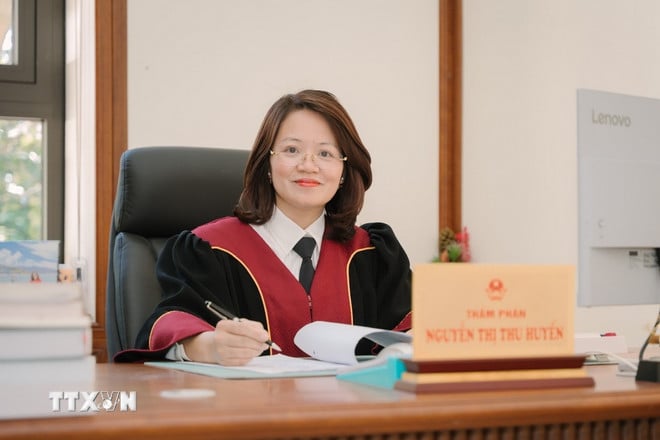
Judge Nguyen Thi Thu Huyen (People's Court of Region 2 - Hanoi) said that the process of conducting litigation to resolve bankruptcy cases faces many difficulties and obstacles. (Photo: Kim Anh/VNA)
Therefore, the Hanoi People's Court has decided to appeal under the retrial procedure for part of Decision 491. At the same time, it is requested that the Hanoi People's Court's Judicial Committee conduct a retrial in the following direction: Partially annul Decision 491 regarding the common child of Q; Transfer the case file to the People's Court of Region 4 - Hanoi for re-trial in accordance with the provisions of law.
In the coming time, the Hanoi People's Court's Judicial Committee will retry this case, resolve it again in accordance with the law and ensure full rights for the parties involved.
Consolidate authority for seamlessness
The two cases of final appeal and retrial mentioned above are among the new points of the jurisdiction of the Provincial People's Court stipulated in Law No. 81/2025/QH15 and specified in the 3-level Court model in Resolution 81.
Implementing Resolution 81, the People's Court system is reorganized according to a 3-level model: Supreme People's Court, Provincial People's Court and Regional People's Court (no longer have High People's Court and District People's Court).
This change is to streamline the judicial apparatus, ensuring more systematicity and professionalism. In particular, the restructuring of the court system, converting from 4 levels to 3 levels to streamline the apparatus, in line with the direction of judicial reform.
The jurisdiction of the former High People's Court and Provincial People's Court is now merged and transferred to the Provincial People's Court and Regional People's Court, creating more continuity and concentration in adjudication.
The arrangement of no longer having a High People's Court has helped the grassroots level, the provincial and regional People's Courts, to promote dynamism and closely follow the practice of adjudicating cases in the area.
From there, promptly detect loopholes and errors in trial activities at the grassroots level to overcome and correct errors, ensuring people's rights.
According to Chief Justice of the Hanoi People's Court Nguyen Xuan Ky, assigning the authority of cassation and retrial to the Hanoi People's Court will help decentralize appropriately, reduce the workload for the Supreme People's Court, and at the same time enhance the position, role and responsibility of the Capital Court in protecting justice, human rights and civil rights.
In addition, with the authority to review and re-trial, the Hanoi People's Court can promptly correct errors in the adjudication of the Regional Court, without having to wait for recommendations to higher levels as before, thereby ensuring the speed, efficiency and consistency of adjudication in the entire two-level Court system of the city.
Typically, the above mentioned case of final appeal was promptly discovered by the Hanoi People's Court during the inspection of trial work at the grassroots level.
This would hardly be possible if the power of cassation belonged to the High People's Court as before.
After the final trial of this case, the Capital Court also proactively drew common experience, contributing to improving the quality of trials.
“In particular, the Hanoi People’s Court has undertaken and successfully completed the authority of cassation and retrial before January 1, 2014. We hope that the practical experience accumulated during that period will be an important basis for us to continue to effectively carry out this task in the coming period, in line with the orientation of innovation in the organization and operation of the People’s Court system,” Chief Justice Nguyen Xuan Ky emphasized.
In addition to being given the authority to review and re-trial cases, the Capital Court sector has also been entrusted with the new responsibility of the Regional Court when it was assigned the additional task of resolving bankruptcy procedures and intellectual property rights for all provinces and cities in the Northern region./.
Lesson 2: “Opening the Way” - Reshaping Vietnam's Judicial Map
Lesson 3: Institutionalizing the Judicial Reform Vision
(TTXVN/Vietnam+)
Source: https://www.vietnamplus.vn/sua-duong-hien-thuc-hoa-muc-tieu-tu-phap-huong-ve-co-so-post1075887.vnp






![[Photo] Prime Minister Pham Minh Chinh attends the annual Vietnam Business Forum](https://vphoto.vietnam.vn/thumb/1200x675/vietnam/resource/IMAGE/2025/11/10/1762780307172_dsc-1710-jpg.webp)
![[Photo] Prime Minister Pham Minh Chinh attends the Patriotic Emulation Congress of the Ministry of Foreign Affairs for the 2025-2030 period](https://vphoto.vietnam.vn/thumb/1200x675/vietnam/resource/IMAGE/2025/11/10/1762762603245_dsc-1428-jpg.webp)
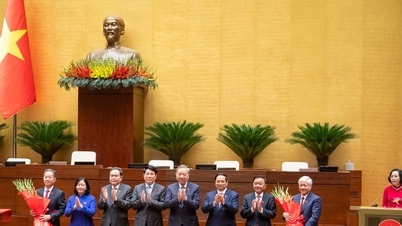

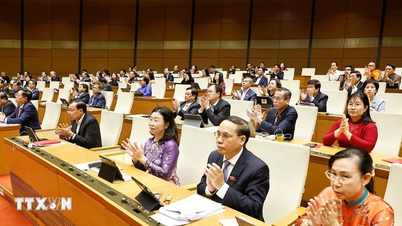
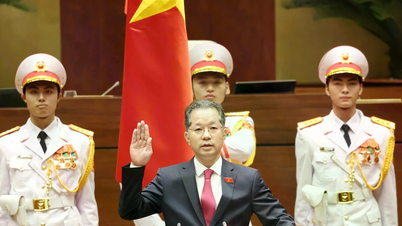



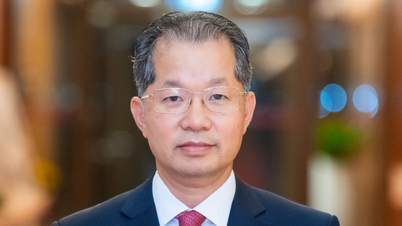

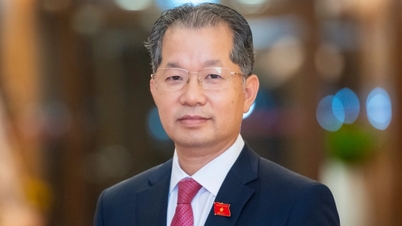
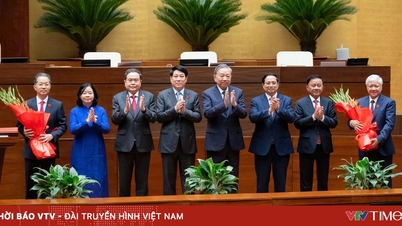



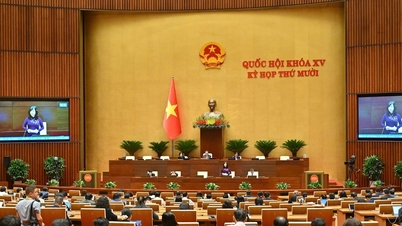

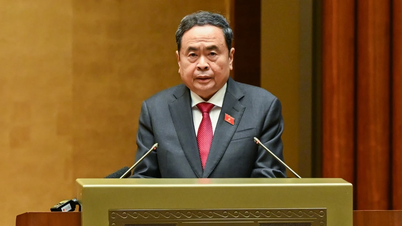







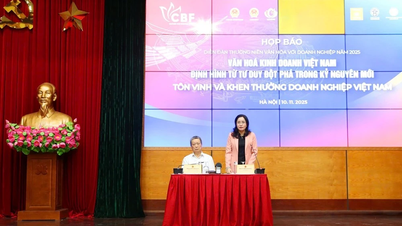









































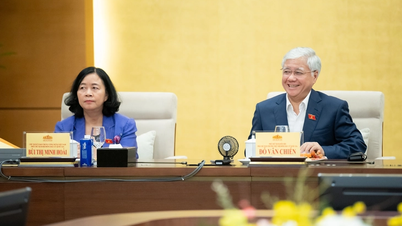




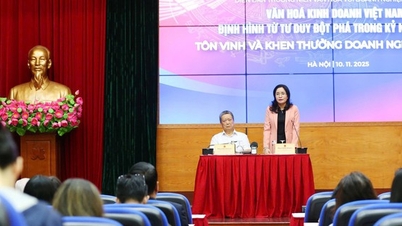










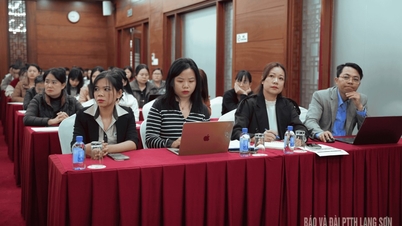


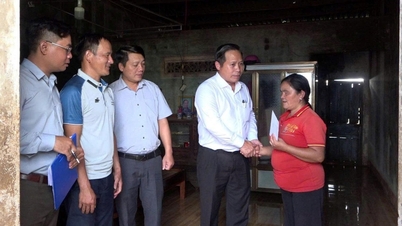


![Dong Nai OCOP transition: [Article 3] Linking tourism with OCOP product consumption](https://vphoto.vietnam.vn/thumb/402x226/vietnam/resource/IMAGE/2025/11/10/1762739199309_1324-2740-7_n-162543_981.jpeg)











Comment (0)